Back in 2012, I restored and modified this stunning Musical Fidelity Tri-Vista SACD Player. I’ve improved and updated my article, for your COVID-19 reading pleasure.
Musical Fidelity’s Tri-Vista range (in 2003) consisted of the Tri-Vista SACD player, Tri-Vista 300 integrated amplifier, the kW pre- and power amp, a vinyl player and a separate digital-to-analog converter, the now-famous Tri-Vista 21 tube DAC. Anyway, enjoy this updated Tri-Vista SACD Player article #FromTheArchives!
The trademark feature of the range, except for the turntable, is the use of the mil-spec ‘trivistor’ miniature triode tube. The trivistor as MF calls it reportedly has a significantly longer lifespan than the Nuvistors used in earlier MF designs. They don’t last forever though. I have lovely NOS Raytheon 5703WB tubes for sale if you need any.

The Brief
My customer, from Australia’s Northern Territory, requested that I significantly improve his Tri-Vista SACD player in terms of its performance as a DAC, plus fix the disc mechanism, if possible. I say if possible because many reading this will already know of the sad saga of loader failures in these machines. In 2012 when I originally wrote this, there was still some hope…

The Work
Firstly, I updated the critical signal path and DAC electronics. The work involved replacing many dozens of parts, including eight op-amps and what seemed like hundreds of electrolytic and ceramic capacitors.




Anyway, enough reminiscing, on with the story.





I always pay special attention to the decoupling of the power supply rails and ground returns around the DAC chips and op-amps. I also focus on the 5703 tube output stage with these Tri-Vista products. Getting rid of crappy 5 cent bipolar electrolytics in the signal path is a really good idea.










Drive Issues
It is worth noting that the transport section of every one of these Tri-Vista SACD players will eventually fail, without exception, leaving you with a DAC, but no player. This player has a digital input though, allowing you to still use it as a DAC, a really good one at that.
I replaced the laser in this player as an experiment. Initially, the machine worked and played discs again. Then, over the next hour or two, the transport stopped reading discs. Again. It is maddening and difficult to ascertain exactly what’s wrong with the design.


What I can tell you is that there was a serious goof with the design of the Philips disc transport. This design goof renders the disc playing element of the Tri-Vista SACD Player, and other SACD machines that use it, dead and unfixable.
Musical Fidelity stopped supplying replacement parts well before I wrote the original article in 2012. They will not repair these players. Heck, they won’t even discuss repairs, nor will they will explain why these expensive players are not repairable.
They did, for a while, offer owners a trade-in program where they took your dead, much nicer sounding Tri-Vista SACD Player + some cash and gave you a newer inferior machine…
The upshot though is that, when these drives fail, we can turn the machine into an even better DAC and that’s what I’ve done here.
Results
My client was absolutely wrapped. He described to me how his supercharged Tri-Vista SACD Player DAC performed better than new DACs costing many thousands. It should do. With this level of engineering built-in and new mil-spec parts, this improved DAC will provide many more years of enjoyment.

Discover more from LiQUiD AUDiO
Subscribe to get the latest posts sent to your email.



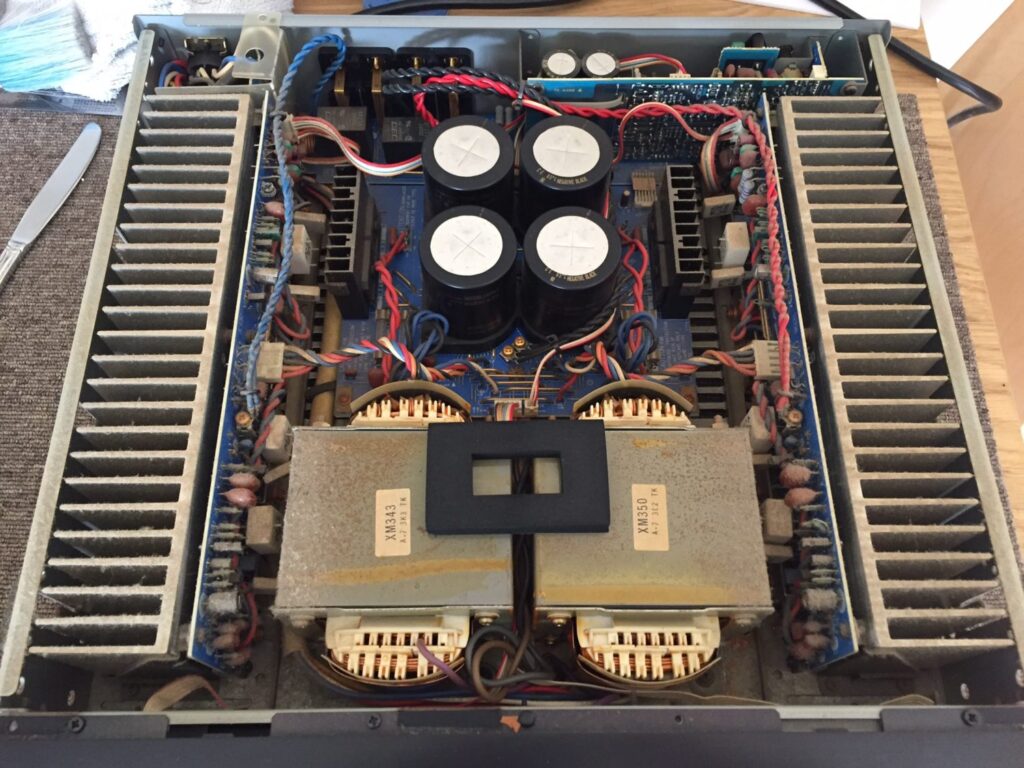
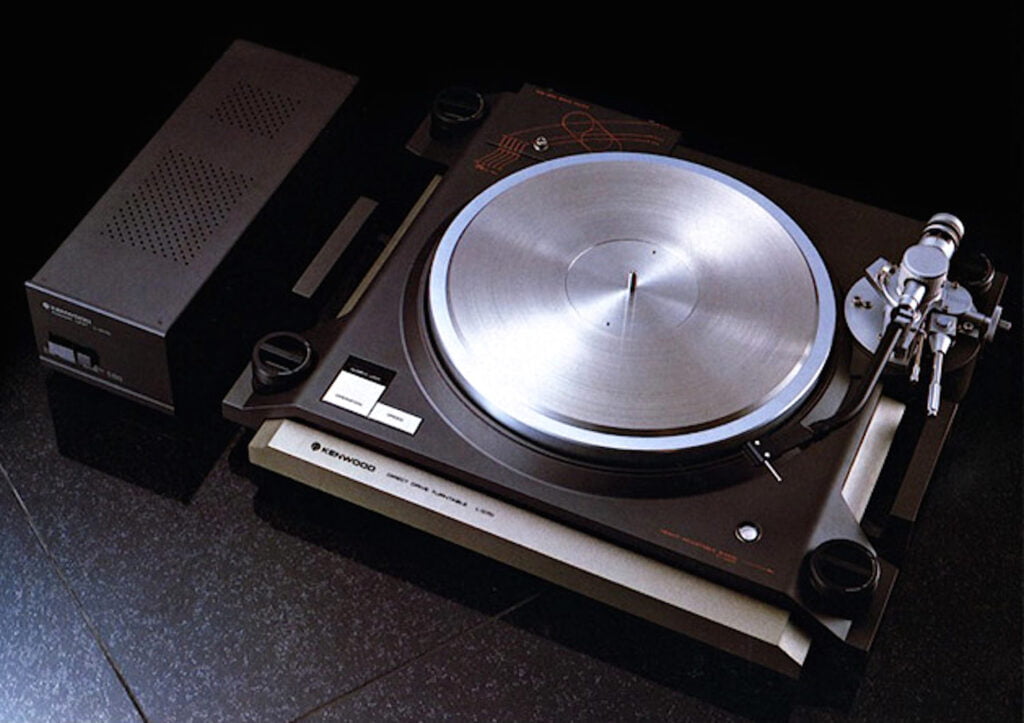
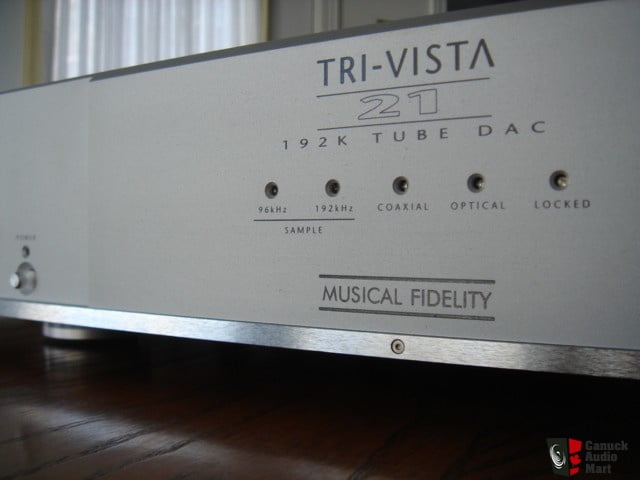
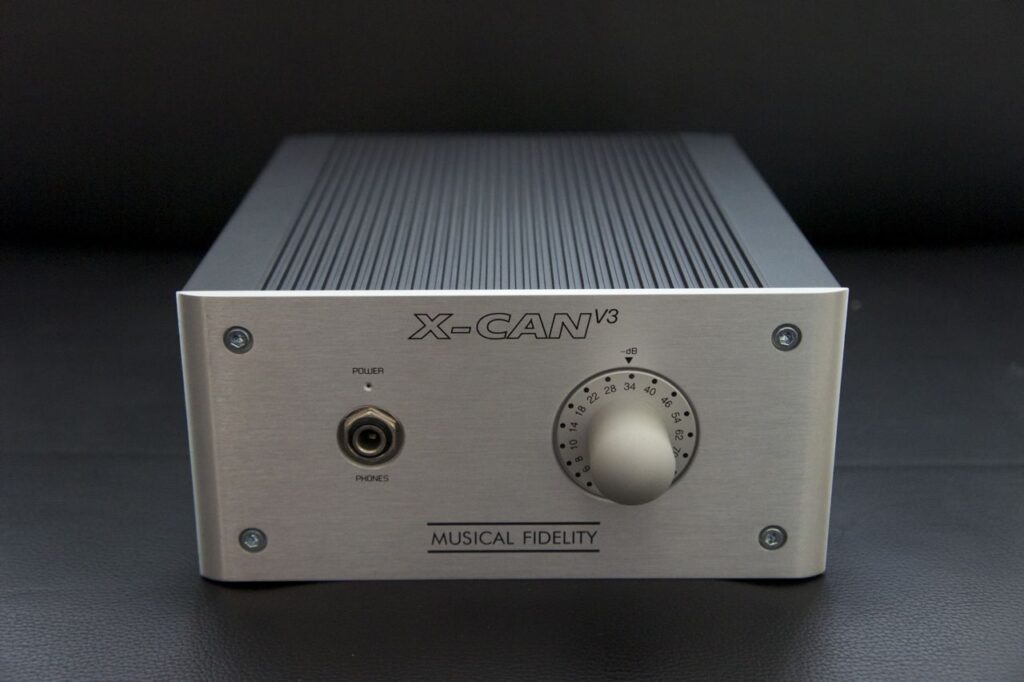
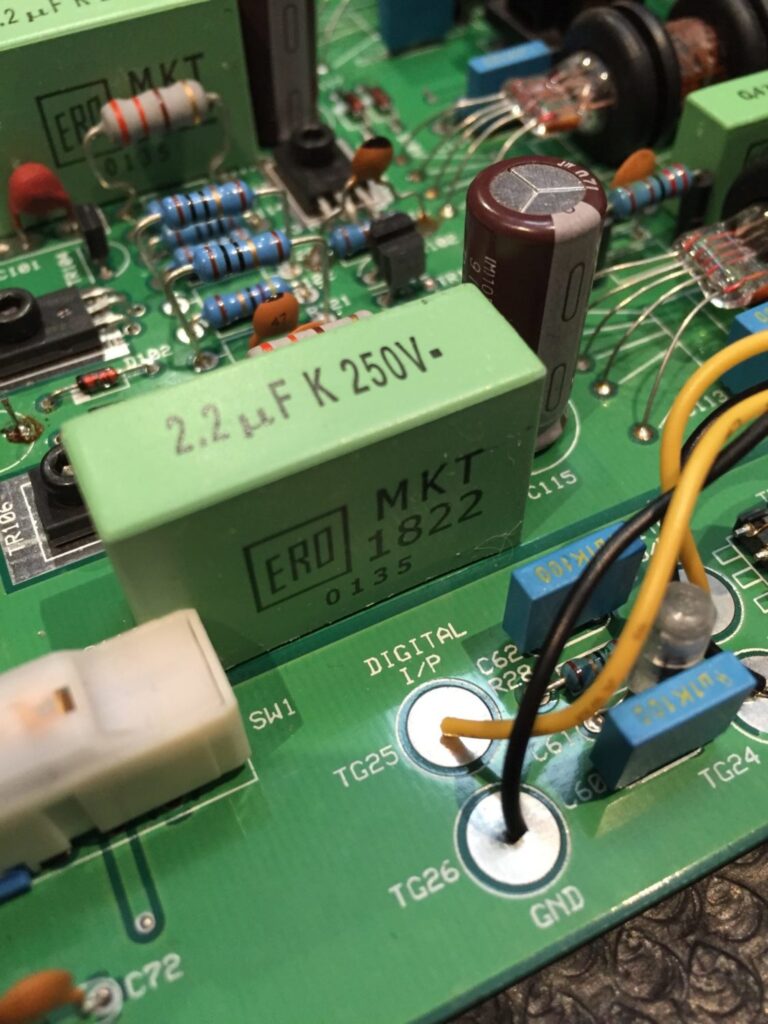
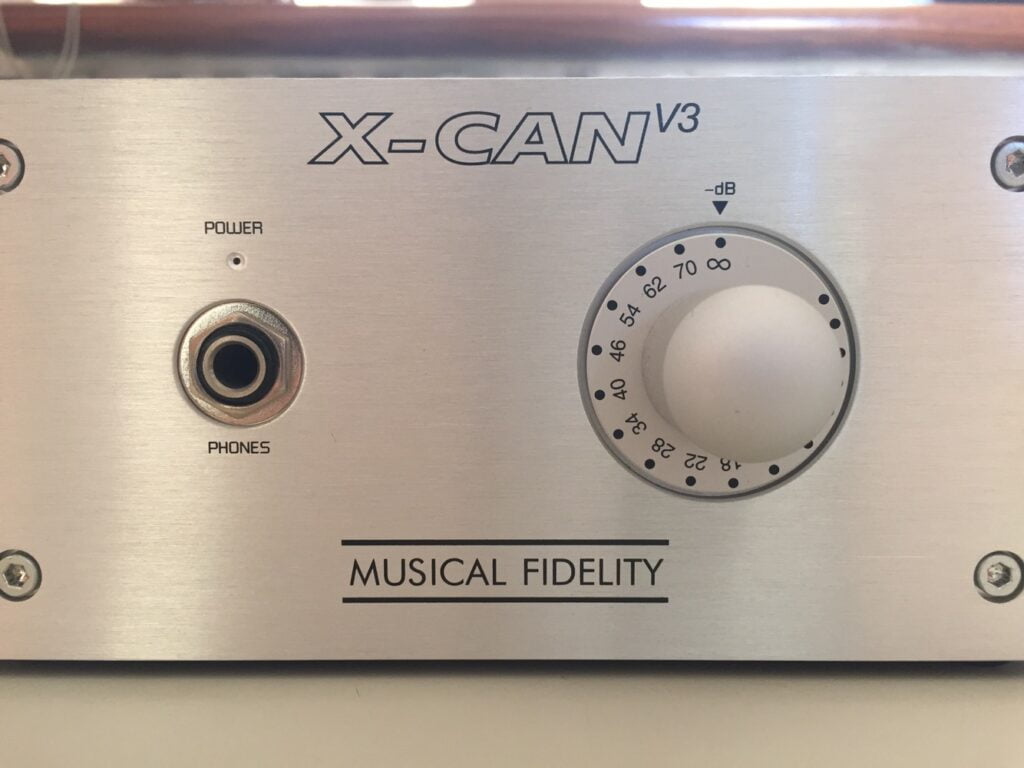
Very interested to read this. Your work gives me hope that I might get some support in UK too. I am UK-based owner of Tri-Vista SACD and the Tri-Vista Amp. it was designed to pair with. The SACD has done what you said it would do re Transporter – I read that there was a critical design flaw in a Philips sub-component – and that this is the killer. Apparently a couple of other manufacturers suffered too, not just Musical Fidelity here. I am pleased to see that the DAC at least could be used again, and I might look at servicing the amp. aswell (giving noise and clicks, and one channel sometimes cuts out now). For such high quality hi-fi I would far rather service, than hunt for new, which would never do justice (on much reduced free cash now!), than this hi-fi that was awesome for its first few years! Do reply, if you get a moment.
Hi Robin, thanks for your comment and I’m glad that the piece may have given you some hope. I would be following up with MF on this as the reliability of some of their gear, especially the gear you own, is appalling. Granted they could not control the quality of the Philips board they used for the SACD mechanism, but they should do something about it now. Let me know if you have any particular questions I might be able to help with. Kind regards, Mike.
Mike
Are you interested in looking at my Musical Fidelity Tri Vista CD Player ?
The transport still works.Thanks Rupert
Hi Rupert, thanks for your message, is there an issue with your player and if so, what?! You might be best replying through my contact form with details etc, regards, Mike.
Hi
My Phillips transport mechanism is die now
Can we mod to use as dac.. for example connect i2s to dac boad.. where can we find a service manual to find a schematic and pin out of conection
Regards
Evil
Hi Evil, you can use this as a DAC, or modify it as you like. You will need to try your luck with MF re schematics, I am not permitted to release the service data. Real shame that the drives in these units die like this. Regards, Mike
Thank you
Let me try it
Hi, I have a Trivista SACD with the same problem. What I am wondering is if the transport and Phillips servo board can be removed and the dac hot wired if you like, to run without the servo board. At the moment all but one cable from the servo board has to be connected to use the dac section.
Any ideas
Hi Kev, yes I think this is likely possible. I don’t have one here with me at the moment to experiment on. I do have the schematics, but this problem would require time and effort to solve. Sadly this is a very flawed machine, but there is potential to run it as you describe.
Hi Mike, thanks for getting back to me. If you have the schematics, I was wondering if you could email the relevant sections so that I modify the dac board. I was an electronics test and repair engineer so I believe I have the skills to do what is required.
Regards
Kev.
Hi Kev, no problem at all and yes it sounds like you would have no trouble doing this work. I’d love to be able to assist with schematics, but given the fact that I’m not permitted to share such factory service data with third parties, there’s not much I can do here unfortunately. This is true for much of the factory data I have from various manufacturers, who share it with the understanding that it remains private. Thanks for your understanding on this one!
Hello Mike, I’m Laszlo, my problem same as like other, transport, and power supply!! Worked very well one day, transport, and shortly after power supply has died. Fixable???
Thanks
Hi Laszlo, I really need to see the unit and test it to determine exactly what’s wrong but yes, most things are fixable. One exception is the transport of these and other SACD players using it though.
Hello Mike, Thanks for your responses, not worth to me fix just for dac, , I already have to many dac, mainly interested to me the transport!!! If it’s not fixable,….. I don’t know. Someone told me can replace the transport for professional pc drive. Is it’s true?
Best regards
Laszlo
Hi Laszlo, a proper repair of the drive using the correct parts is not possible. I doubt anything else would work well and the engineering time needed to devise such a work around, even if it is possible, would not be worth it in my opinion. The DAC is the best part of this machine, hence the value in going down that route.
Hi, do you think there’s any value in upgrading the components in my MF A3 integrated and A3.2 power? The sound is ok, but has come a little muffled with age (could be me too)
Hi Peter, in my opinion definitely, I regularly improve MF gear like this and the differences are not subtle.
Dear Mike, interesting discussion! To start off, I am a medical doctor (pediatrician), so not at all capable to tackle this issue, but having said that: if the Philips disc transport system is the problem, could it no be replaced by a more reliable, for intance, Sony part, which is being used in the later KW Musical Fidelity DM25 transport CD player ?
Hi Maarten, thank you for visiting and commenting! You’ve raised an interesting topic for consideration. This is a great idea in theory but there are a couple of fundamental problems with replacing a mech with something different as you suggest. Dimensions and mechanical fastening points vary from mech to mech. This means that a new mech will almost certainly not physically fit. Cable interfaces also vary from mech to mech and machine to machine, further complicating things.
Secondly, and more importantly, are the electronic interface and control differences. A different mech will not communicate and interface with the rest of the player electronics as the original did. None of these issues is insurmountable, but we need to add the context of this being consumer electronics and not especially valuable. Reverse engineering a solution is possible but would be very expensive and this would need to happen, and would be different, for each model!
Keep in mind that when all this originally went down, the design engineers from MF, Krell, Marantz and everyone else who used these Philips SACD mechs, looked at solutions to keep customers happy. All of them decided that the best option was simply to offer customers new and different machines. This says a lot about how difficult/expensive it is to fit a new mech into an existing design. Sadly, many people lost large amounts of money over this goof.
Oh dear! The transport on my kW SACD just failed and I was searching the internet for someone to repair it and read this rather depressing article. The door is refusing to open… is there any hope of a repair or is this lovely player destined to be junk?
Hi Howard, thanks for visiting and yes, these machines unfortunately become unrepairable when they truly fail. A tray not opening doesn’t mean it’s dead though necessarily. There are a number of possible causes for that failure and it’s probably worth having them investigated.
Hello,
I experience problems with starting the unit. I get red color for the all four supports. Usually is yellow and then blue. Now it stays Red. Any idea
Thanks a lot Sorin
Hi Sorin, red indicates a fault condition, with many possible causes, so the next step is diagnosis. That requires the unit go to someone able to perform that testing and diagnosis so hopefully you have a good tech who can assist. I work with a lot of MF gear here in Australia and can also recommend people on the east coast, but I am guessing you are based overseas.
I checked more on the PCB1680 DAC. The red comes from IC12 (UDN2981A) and there from IC2 (74HC4094) which is a 8 stage shift-and-store bus register. From there on is getting significantly mode difficult to troubleshoot and requires multi spot oscilloscope with memory…. I see 50.Hz and 16MHz frequencies. As you said, it requires someone knowledgeable with documentation and adapted tools
Hi Sorin, good progress there and yes, as mentioned, this should be relatively straightforward in the right hands.